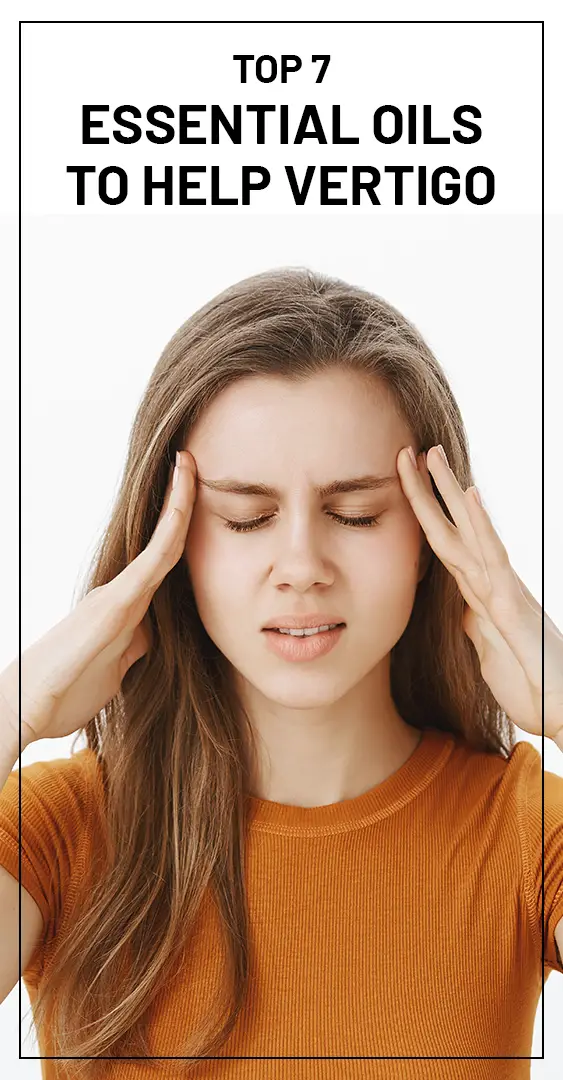
Important: This article is for informational purposes only. Please read our full disclaimer for more details.
There are many people who suffer from vertigo on a regular basis. The condition can be extremely debilitating, preventing sufferers from carrying out their everyday activities. While there are various medical treatments available for vertigo, some people prefer to seek out home remedies as an alternative or adjunct treatment.
One possible home remedy for vertigo is the use of essential oils. Essential oils are concentrated plant extracts that have been shown to have various medicinal properties. Some essential oils that have been traditionally used for vertigo include ginger, lavender, and peppermint oil.
How to Use Essential Oils for Vertigo
There are several different ways that you can use essential oils for vertigo. One popular method is to add a few drops of the oil to a diffuser and inhale the vapors. You can also add a few drops of the oil to a warm bath and soak in it for 20-30 minutes.
If you prefer, you can also mix the essential oil with a carrier oil such as jojoba oil or coconut oil and massage it into your temples and neck.
Which Essential Oils are Best for Vertigo?
As we mentioned above, some of the best essential oils for vertigo include ginger, lavender, and peppermint oil. However, there are other essential oils that can also be effective. Some of these include:
1. Ginger Oil
Ginger oil has long been used as a natural remedy for nausea and vomiting. It is thought to work by stimulating the digestive system and helping to relieve any stomach discomfort that may be causing the vertigo.
2. Lavender Oil

Lavender oil is well-known for its calming and relaxing properties. It is thought to help reduce stress and anxiety, which can trigger vertigo episodes.
3. Peppermint Oil
Peppermint oil is cooling and refreshing. It is thought to help relieve any headaches or migraines that may be causing the vertigo.
4. Rosemary Oil

Rosemary oil is stimulating and invigorating. It is believed to help improve circulation and ease any dizziness or lightheadedness that may be associated with vertigo.
5. Basil Oil
Basil oil has a calming effect on the nervous system and can help to reduce vertigo symptoms.
6. Cypress Oil
Cypress oil is known for its ability to improve circulation and can help to reduce the feeling of dizziness associated with vertigo.
7. Lemon Balm Oil
Lemon balm oil has a calming effect on the nerves and can help to reduce vertigo symptoms.
How to Make a Vertigo-Relief Oil
If you want to try using essential oils for vertigo, you can make your own vertigo-relief oil at home. Simply mix together the following ingredients:
- 5 drops ginger oil
- 5 drops lavender oil
- 5 drops peppermint oil
- 4 tablespoons carrier oil (jojoba oil or coconut oil)
To use, massage the oil into your temples and neck. You can also add a few drops to a diffuser and inhale the vapors.
When to See a Doctor
While essential oils can be effective for some people, it is important to see a doctor if you are experiencing vertigo on a regular basis. Vertigo can be a symptom of an underlying health condition, so it is important to get medical help to rule out any serious causes.
A doctor can also provide you with other treatment options if essential oils do not seem to be helping.
Essential oils have been used for centuries as natural remedies for various ailments. If you want to try using essential oils for vertigo, you can make your own vertigo-relief oil at home. Many of these essential oils are not a perfect treatment methods for vertigo and they need more evidence and research on essential oils for vertigo.
Caution with Essential Oils
While essential oils are generally safe, they can cause irritation or allergic reactions in some people. If you’re using essential oils for the first time, make sure you’re not allergic to them. Pregnant women and children should also avoid using essential oils.
You Might Also Like:
- 10 Essential Oils for Cold Sores: How It Works?
- 8 Essential Oils for Migraine Pain Relief | How To Use It
- 15 Best Essential Oils for Cough: Benefits & How to Use
- 8 Best Essential Oils for Anxiety – Benefits & How to Use?
- The 10 Best Essential Oils for Depression
















